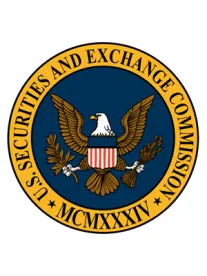At an open meeting held on Wednesday, October 26, the Securities and Exchange Commission (SEC) voted 2 to 1 to propose amendments to the proxy rules that, if enacted, would require each party in a contested election of directors to distribute a universal proxy card to shareholders. Rather than listing only the individual director nominees put forth by each party, the universal proxy card would include the names of all director nominees. The proposed amendments are designed to remove certain limitations imposed on shareholders voting by proxy under the current proxy rules, and, according to the SEC, would increase the likelihood that all shareholders “are consistently and uniformly afforded the ability to select the director candidates of their choice in contested elections.”
In her statement at the open meeting, SEC Chair Mary Jo White noted that, with respect to contested elections, under the current rules, “There is a stark difference between voting by proxy and voting in person.” Shareholders that attend an annual meeting in person generally cast a written ballot that includes the names of all candidates, including management’s nominees and any dissident nominees. As a result, they have the ability to vote for individual nominees from each slate.
In contrast, under the current proxy rules, shareholders voting by proxy in a contested election are presented with competing slates on separate proxy cards distributed by management and dissidents, and due to state laws and the current proxy rules, are effectively required to choose one slate in its entirety. This is caused in part by Rule 14a-4(d)(1), also known as the “bona fide nominee rule,” which prohibits a party in a proxy contest from including the other party’s nominees on its proxy card without the consent of such nominees, which is rarely given in a contested election. Given that the proxy process is the primary means by which shareholders vote on the election of directors, Commissioner Kara M. Stein commented that “the goal of [the proposal] is to better replicate for shareholders who vote by proxy the voting choices they would have if they attended a meeting in person.”
The proposed amendments would apply to all non-exempt solicitations for contested elections other than those involving registered investment companies and business development companies. In addition to mandating that proxy contestants provide shareholders with a universal proxy card, the proposed amendments would, among other things:
-
Prescribe formatting and other requirements for the form of the universal proxy card to ensure that it clearly and fairly presents information to shareholders;
-
Require proxy contestants to notify each other of the candidates for whom each party intends to solicit proxies;
-
Require dissidents to file their definitive proxy statements with the SEC by the later of 25 calendar days prior to the meeting date or 5 calendar days after the company files its definitive proxy statement;
-
Require proxy contestants to refer shareholders to the other party’s proxy statement to obtain information about that party’s nominees;
-
Revise the definition of a “bona fide nominee” to be a person who has consented to being named in any proxy statement for the applicable meeting (rather than requiring the nominee to consent to being named in each proxy statement), enabling parties in a contested election to include all director nominees on their proxy cards;
-
Eliminate Rule 14a-4(d)(4), also known as the “short slate rule.”Subject to certain requirements, this rule allows a dissident nominating a minority of directors to round out its slate by including management nominees in its proxy card without obtaining their prior consent (notwithstanding the bond fide nominee rule). The rule was enacted to prevent shareholders voting by proxy from being partially disenfranchised.If a universal proxy card is required, the short slate rule would no longer be necessary; and
-
Require dissidents in a contested election to solicit shareholders representing at least a majority of the voting power entitled to vote on the election of directors.
Citing concerns that some company proxy statements contain ambiguities and inaccuracies regarding voting standards in director elections, the SEC is also proposing certain amendments requiring changes to the form of proxy and mandating additional disclosure.These amendments, if enacted, would apply in all director elections, not just contested ones. Specifically, these amendments would:
-
Mandate the inclusion of an “against” voting option (and eliminate the ability to provide a “withhold” voting option) on the form of proxy where state law gives legal effect to votes cast against a nominee;
-
Provide, in an election governed by a majority voting standard, an option for shareholders to “abstain” (rather than “withhold authority to vote”); and
-
Require disclosure in the proxy statement of the effect of a “withhold” vote.
The SEC is soliciting public comments on the proposed rule for 60 days. The proposed rule includes a request for comments on a variety of issues raised by the use of a universal proxy card. These include:
-
Whether listing management’s nominees on a universal proxy statement could result in the voter confusion or create a false impression that all of the candidates named support the dissident’s agenda;
-
Whether dissidents should be required to solicit all shareholders, rather than just the holders of a majority of the issuer’s outstanding voting power as required by the current proposal; and
-
Whether dissidents should be required to make all proxy materials publicly accessible, free of charge, online (other than through the EDGAR system).
Commissioner Michael S. Piwowar voted against the proposed amendments at the open meeting and expressed concern in his dissenting statement that the amendments as proposed may result in certain shareholders not receiving a dissident’s proxy card and other important disclosures contained in the dissident’s proxy statement.
To view the proposed rule in full, please visit https://www.sec.gov/rules/proposed.shtml.
Aggeliki Delimaris and Kara Sharkey, associates in the Corporate and Securities Group, assisted in the preparation of this article.









 />i
/>i

